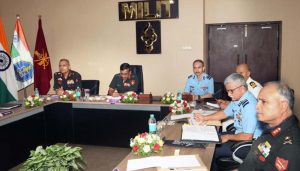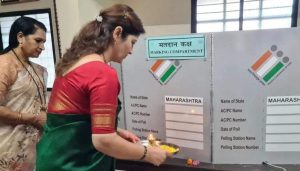Roadways will propel economic growth of the country: Gen V K Singh, MoS, Road Transport and Highways

New Delhi, 30th October 2019: The industry needs to explore new technological advancements to adopt road sustainability, said Gen V K Singh (Retd), Minister of State for Road Transport and Highways at an ASSOCHAM event held here today.
The industry needs to monetize road-side amenities to address financial challenge, said Gen V K Singh (Retd), Minister of State for Road Transport and Highways highlighting the importance of roadways in propelling the country’s growth at an ASSOCHAM event held here today.
The good road connectivity is key for driving economic and social development of a country. Roads are the engines of the economy enabling seamless movement of people and material across the length and breadth of the country. In a growing economy like India with a target to reach USD 5 trillion by 2025, good quality roads will play a critical role in boosting industries and market accessibility, said Mr. Singh.
While addressing his inaugural address, Mr B K Goenka, President ASSOCHAM said, the Government has outlined its vision of investing Rs 100 trillion in the infrastructure sector by 2024 and has set an ambitious target of building almost 45 km of roads per day – up from 9km/day just four years ago – this fiscal year. The 24,800 km Bharatmala project, running through economic corridors, border and coastal areas and expressways has a completion deadline of 2022 and is expected to give a big push to the economy by generating jobs and increasing demand for everything from steel to cement.
The land acquisition processes have improved over the past years, but land prices have gone up in recent years. This has impacted viability and capital expenditure outlay in some projects. The NBFC & ILFS scenario coupled with the public sector banks’ reluctance to lend has impacted new projects, said Mr. Goenka.
Project financing has become much tougher which has led to delays in financial closure of projects and, in some cases, stalling of projects under implementation. While we have seen several rate cuts from RBI, these have not been passed on to the borrowers by the Banks. This is leading to increased interest cost for the projects which in turn is affecting its viability, said ASSOCHAM President.
Pending claims is also an important issue affecting the cash flow of the infra players. There are several claims which have been awarded in favour of the developer/contractor which have not been released by the relevant authorities, noted Mr. Goenka.
We request the authorities to release at least 75% of the claim amount without the bank guarantee. Also, since Infrastructure industry being a labor intensive industry and amongst highest employer, there is an urgent need to streamline the labor laws.
As the industry is facing the acute funding issues, the Government can also look at developing bond market for long term infra project financing. This should also be supported by credit enhancement mechanisms to improve the credit ratings of the bonds which in turn will ease out the financial constraints in the sector.
India needs fast growth in road capacity building, not only in highways but also in rural areas and backward hilly areas. The Pradhan Mantri Gram Sadak Yojana (PMGSY) is a significant initiative to provide all-weather road access and connectivity to rural. This would enhance livelihood opportunities, market linkages for local produce and bring the rural areas closer to the mainstream economy. It has the potential to renew the shape of our rural landscape. While we enhance our capacities and build our roads and infrastructure, we also need to be mindful of the growing concerns on sustainability in planning, design and operation of road infrastructure. In the rural areas, which have about 60-70% of our population, the access has a lot of scope for improvement.
During his concluding remarks, Mr. Vineet Agarwal, Vice President ASSOCHAM said, Sustainable roads and road safety need to be integrated in all the phases of planning, design and operation of road infrastructure. Road safety management and enforcement of traffic safety regulations have not kept pace with the development. New technologies and value engineering can play major role in making roads and highways sustainable and safe.







